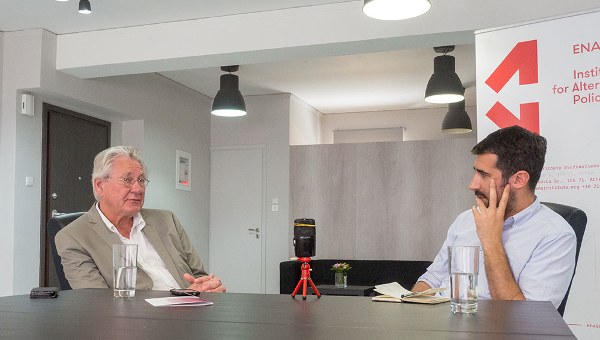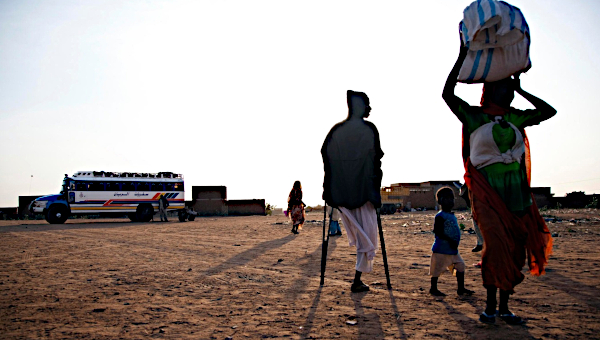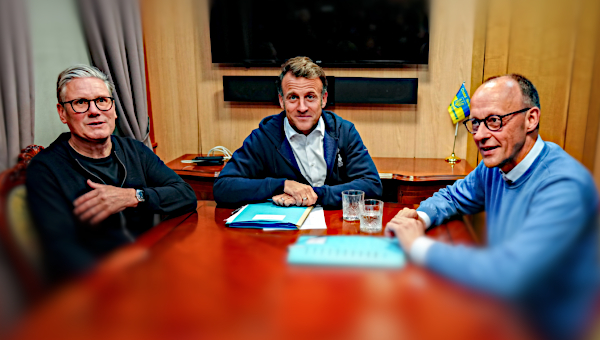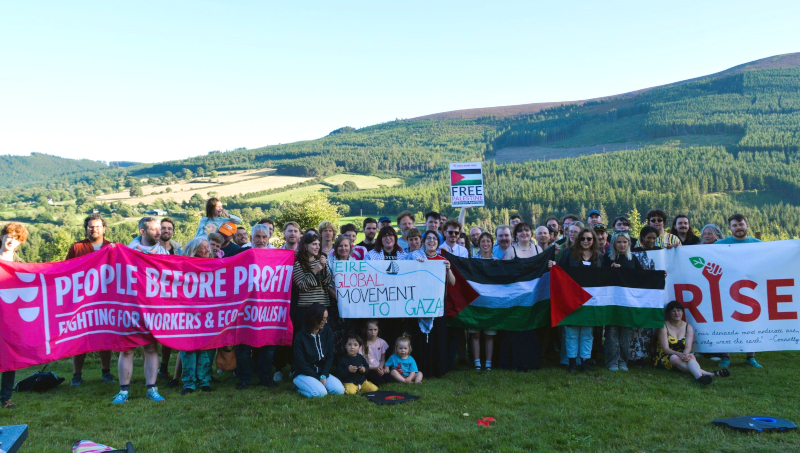For Leo: the Teacher, the Friend, the Comrade
The news of his hospitalization came unexpectedly just a few weeks ago. When things became more difficult for him, Skype became the tool to carry out his “commitments.” You see, there was this conference on Socialism in the 21st century in January, organized by the Nicos Poulantzas Institute. His response to my awkward jokes, as well as our discussion about his interview about the American elections in the Greek newspaper Epohi and about his concerns regarding the condition of the Left in Greece helped to soften those first pangs of anxiety. Informing me of his diagnosis and treatment, through Skype, was done with such stoicism and optimism, that it prevented the screen from conveying any alarm. Even COVID, which eventually put an abrupt end to his life, initially did not extinguish hope. You see, there was this certainty that “we will talk soon.”

I also belong to this last category. For many hours, my fingers have rested motionless on the keyboard; thoughts, images, and events running through my mind about the last four decades… Suspended, puzzled… How do I squeeze into one article forty-two years of acquaintance, apprenticeship, friendship, and companionship in the movement for socialist transformation? How can I include all his work, his contribution to the social sciences, his contribution to the Marxist tradition, his international and internationalist presence, his ties and passion for our country, our struggles and our culture, and finally to his life and his personality?
So … let it be.
Long Career
Leo was born in Winnipeg, Canada in 1945 and was the second son of a Jewish industrial worker and trade unionist. Despite his international recognition, the culture and influences of his social background never became a distant youthful memory for him. On the contrary, they became the basic compass of his brilliant academic career. He studied political science and economics at the University of Manitoba, and then with a scholarship, completed his postgraduate studies at the London School of Economics and his doctorate under Ralph Miliband. In 1972, he was hired at Carleton University in Ottawa, and then moved on in 1984 to York University in Toronto where he taught for the rest of his life. In his long career, he also taught at almost all major universities in North America and Great Britain but also in dozens of universities in all corners of the globe.
In his doctoral dissertation, Social Democracy and Industrial Militancy: The Labour Party, the Trade Unions and Incomes Policy, 1945–1947, he essentially updates and deepens the classic work of his teacher of Parliamentary Socialism. In this work, Panitch tries to prove, through the study of the income policies of the Labour Party, that the relevant restrictions that it imposed, even through the unions, were related to the ideology of integration into the existing socio-economic class and were by no means part of a plan of socialist design. In fact, the Labour Party remained the object of his always sharp criticism. In his many articles and in all three of his books (the last one with Colin Leys just a few months ago – Searching for Socialism: The Project of the Labour New Left from Benn to Corbyn), he convincingly analyzes how the current Blairist approach of attributing electoral failures to the left wing of the party and to seek alternatives to traditional social democracy, narrowly defined parliamentarism, and ultimately, to neoliberal management, led to disaster. Beyond the critical analysis of social democracy, which arose from Panitch’s research activity, his interest progressed to the study of labour relations of the state and the contradictions of the so-called “existing socialism.”
The publication and editing of dozens of books – including the historical and pioneering Socialist Register yearbook founded by his teacher Ralph Miliband and by John Saville in 1964 – his hundreds of articles, and other public speeches ensure his impressive recognition not only by the global left-wing intelligentsia but also by almost the entire mainstream of the political science discipline (e.g., the International Studies Association, the International Political Science Association, the European Consortium for Political Research, the International Conference of Europeanists, the American Political Science Association, the American Historical Association, the American Sociological Association, the Canadian Political Science Association, and others). The government of Canada made him a Fellow of the Royal Society, and his work was recognized by the Social Sciences and Humanities Research Council of Canada. His respect and contribution to socialist scholarship is widely recognized. Notably, his already classic work The Making of Global Capitalism: The Political Economy of American Empire, which he co-authored with his close friend Sam Gindin, received the Issac and Tamara Deutscher Memorial Prize, for the best creative work in the Marxist tradition in 2014.
Inequalities and Class Contradictions
At the risk of oversimplification, I would say that all Panitch’s work reveals a research project that systematically seeks to understand, and at the same time confront, the contradictions between the formal equality of the liberal order and the deep and ever-expanding inequalities produced by global capitalism. This research concern initially led him to the creative adoption of the methodological propositions of Marxist political economy in the study of the class contradictions of corporatism for Keynesian economic policy and wage-setting in the 1970s. As world capitalism entered its neoliberal phase in the 1980s, Panitch focused on the study of the state and its relationship to political subjects and labour organizations and the turn to coercion in labour legislation and the regulation of collective bargaining. The processes of capitalist integration, the so-called globalization, turned his interest toward the global capitalist system in the 1990s, where he paved the way for understanding the nature of the modern neoliberal capitalist empire. Panitch clearly and solidly advocates the view of the state as an “author of globalization,” as the state’s policy initiatives strengthened the mobility of capital and restructured labour markets into extremely flexible structures for international competitiveness.
In contrast, views belonging to the mainstream, and unfortunately even to some parts of the left, had many accepting globalization as an inevitability of markets and technology, steadily conceding to a reduction in the importance of democratic participation and resistance and contributing to the neoliberal effects of ‘depoliticization’. The perception and belief that the nation-state is “over” leads, for Panitch, to the passivity of the citizens, to the diffusion of conspiracy theories, to demobilization and cynicism, but also to reckless criticism, or rather non-criticism, of the mistakes and omissions of governments. Panitch stands firmly against such perceptions and overly simplistic analyses that not only nullify the social/class struggle but take us back to political thinking before the contribution of Giambattista Vico.
His diverse research work never limited his generosity to his students, to whom he devoted his time unsparingly. He never neglected his teaching duties and never denied his selfless administrative contribution to the institutional organization of university life. In particular, he never shied away from contributing, through his discourse, to the needs of the left, progressive politics and workers’ efforts, not only in the developed North, but also, in the “global South” (Venezuela, Brazil, South Africa, Vietnam, and many others).
Nevertheless, Leo, as a good friend noted, remained until the end a unique personification of Gramsci’s “pessimism of the intellect and optimism of the will” (even if Leo himself turned this into a notion of “revolutionary optimism of the intellect”). Although he never thought that socialist transformation was near, he never denied his full support and solidarity for every endeavor that contributed, even in the slightest, to the socialist transformation of society.
His interest and love for Greece, and Greek history and culture dates to the 1970s. But his intense political interest and frequent presence in the adventures of the Greek left, begins in the late 1990s and becomes particularly intense as SYRIZA grows stronger and attracts world interest. For Leo, this interest was not accidental, as he saw the initial emergence SYRIZA as “the only effective anti-neoliberal force of the 21st century.” Frequent visits followed at every opportunity, which included interviews, participations in conferences, public discussions. A clear, critical, paraenetic, enthusiastic discourse evolved, but without exaggerations or naivety about the achievable or about the opposing political forces. Leo’s discourse, while always analytical, was never condescending. It was always a strong argumentative discourse but, at the same time, modest, since he never abandoned the role and passion of the student of social developments and dynamics.
It is difficult to recount all the elements of this practical and essentially existential interest for the Left and the radical movement in our country. Interviews and texts in a series of newspapers of the left, including Epohi (after all, his last public written text can be found in the issue of Dec.12), Avgi, Dromos tis Aristeras, and Efimerida Syntakton; interviews and texts in volumes of the Institute of Strategic and Development Studies and of the Poulantzas Institute (2nd Annual Poulantzas Memorial Lecture in 2008, and frequent participant in its conference events); interviews in Sto Kokkino radio (“Theory on the air”); meetings and workshops with members of the solidarity movements, trade unionists and labour researchers (GSEE and INE executives), party and government executives of SYRIZA; but also university and research seminars and conferences at the universities of Crete, of Peloponnese, and of Athens (the last awarded him the title of Doctor Honoris Causa 2018); and other similar initiatives (e.g., Rising Democracy – Athens 2015; and the Radical Imagination Institute – Kassos 2019). The fact that Greece was in many ways a recurring research reference of his is proven in the book The Socialist Challenge Today: SYRIZA, Sanders, Corbyn, which he co-authored with Sam Gindin, just two years ago.
Although Leo always showed understanding of the important choices and dilemmas of SYRIZA, he never stopped being critical about many of them. His was a critique that has always exhibited a comradery; a constructive critique that never slipped into easy suggestions of an arbitrary voluntarism. He has been one of the few international left intellectuals who supported the difficult choices of the SYRIZA government, and at a personal cost, as he sometimes was confronted by the polemics of the type of left which conflicts with dialectical criticism and which seems to be comfortable in the purity of a white-and-black way of thinking.
Friend and Comrade
Leo was (it is difficult to get used to the past tense) all this and more. He was a regular guy “with many passions and completely down-to-earth behavior,” as a close friend of mine reminded me with tear-filled eyes that could not be hidden by Skype. Leo enjoyed travelling, jazz, and food. He liked meeting new people and socializing, which he managed to do even when there were language barriers. He did not avoid heated discussion. He opposed arguments but never the people who made them.
A true democrat with strong views, he never hesitated to request an article for the Socialist Register, even from those with whom he disagreed. And they never refused him, regardless of the traditions and paths of the world left-wing intelligentsia to which they belonged. This was the case even though they knew that they would have to undergo his strict gaze and judgment before publication. Strict and forgiving at the same time. Impulsive, decisive, but also reflective. Very sociable and really devoted to his family. And his family, Melanie, the love of his life, Maxim and Vida, always kept the door of their home open to friends, students, comrades, and colleagues.
Leo Panitch was a tall man, and maybe because of those long legs of his, he always walked quickly. Often too quickly for me. Even though I am a former speed-walker, he was always one step ahead. It was as if he wanted to anticipate tomorrow, to approach it, to understand it, and to project it through teaching. That is why his memory and his example weigh heavily upon us now, so much so that I feel I will never be able to cover that step that always separated us, even in our quiet walks. This burden is even greater today as we look for a way out of the stagnation of our political strategy now that the clouds and the practices of political inclusion to mainstream conformism are thickening. His absence is simply unbearable.
I gain some relief and some hope when I remember his comment, during a break at a midnight event of Epohi weekly newspaper in downtown Athens. Overwhelmed by jet lag, the heavy schedule of the day, and admittedly, also the many shots of raki at his favorite restaurant on Kaningos Square, he gazed at the illuminated Acropolis. Clearly moved to be there, he whispered to me, “any society that has the courage to reflect and discuss at this time of night cannot fail to claim a fairer and more humane tomorrow.” •
First published in the Greek weekly Epohi December 24-25, 2020. (It is translated by Aris Spourdalakis, Dinisia Pitsili-Chatzi, and edited by Helga Stefansson.)





